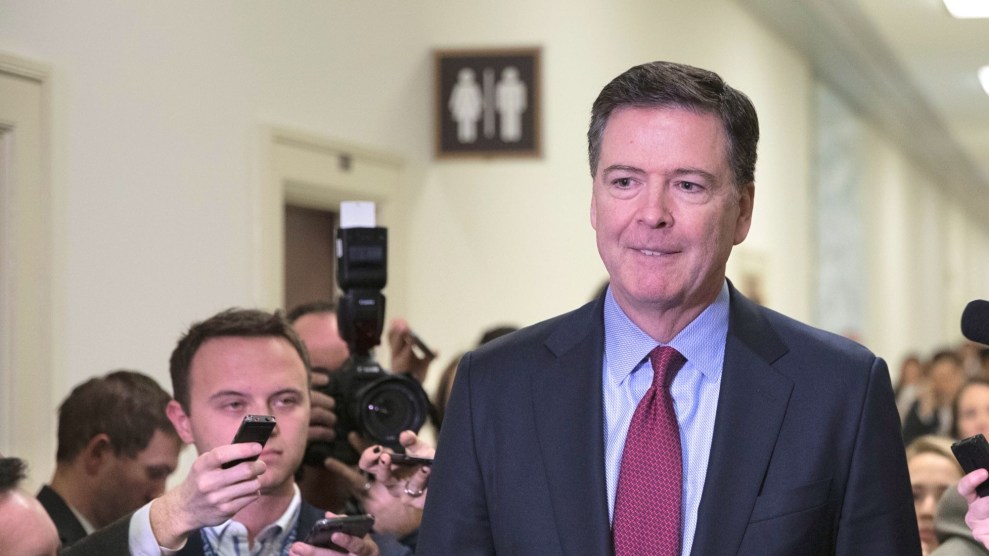
Former FBI Director James Comey arrives at the Longworth House Office Building on Capitol Hill in Washington, DC, on December 7, 2018.Alex Edelman/Zuma
Yesterday the Justice Department’s Inspector General released a scathing report about James Comey’s leak of a report to the New York Times. I spent most of the day trying to figure out why the IG was so beside himself, but I failed. Let’s go through the case.

The facts are simple and undisputed. Back when he was FBI Director, Comey kept summaries of his conversations with President Trump. After Trump fired him, he gave one of the summaries to a friend, with instructions to share the substance, but not the summary itself, with Michael Schmidt of the Times. Comey also gave copies of the other summaries to his lawyers, but did not share them with the press.
So that’s that: basically Comey leaked to the press the fact that Trump had tried to influence the investigation of Michael Flynn. If Comey had just picked up the phone and called Michael Schmidt, he would have done nothing wrong. However, because he had a friend do it based on the contents of a summary Comey wrote while still in office—a summary which contained no classified information—he violated government policy.
There are a few other details to the case, including whether Comey should have retained possession of his summaries at all when he left office, and the fact that some of the summaries had a few very minuscule passages that were retroactively labeled confidential. But the leak is the key issue.
All of this has been common knowledge for two years. Comey acknowledged what he had done almost immediately. When the FBI asked for the summaries back, he gave them back. When they retroactively classified a couple of phrases, he notified the appropriate authorities immediately. So why did this take two years and 62 pages to clear up? That’s hard to figure out.
Now, by definition, leaking is against government policy, so presumably Comey did indeed violate government policy. But surely this is more whistleblowing than leaking? It was a very small, very focused leak that exposed clear wrongdoing on the president’s part. No classified information was put at risk and no investigations were compromised. Only one thing happened: the country found out that the president of the United States had lobbied the FBI Director to go easy on a friend of his.
That sure sounds like a pretty good reason for a leak. And while I don’t expect the Inspector General to condone leaking, this case certainly doesn’t seem to justify the time, money, or vitriol that the IG brought to it. It’s a bit of a mystery.
Ben Wittes has more here if you want to dive deeper into the details.
















